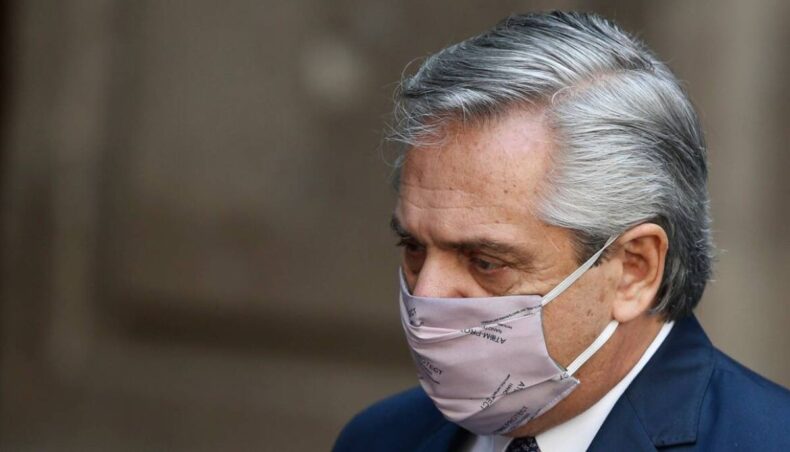Argentina is dealing with high peso currency pressure, over 60% inflation, and skyrocketing gas import prices.
President Alberto Fernandez of Argentina has urged unity as protestors in the nation’s capital, Buenos Aires, on Saturday marched to the gates of the presidential palace and denounced his administration for the nation’s crippling national debt and skyrocketing inflation.
A militant left component of the ruling coalition is mounting an increasing challenge to the center-left president and wants more government expenditure to reduce high poverty and inflation. In the past month, two significant moderate supporters have quit his government.
The South American nation, which is a significant soy and grain producer, is struggling with inflation that is over 60%, intense pressure on the peso currency, and rising gas import costs that are depleting already meager foreign exchange reserves.
Fernandez called for “unity” in an address to commemorate the centenary of Argentina’s independence declaration and urged various factions to work toward it.
He said that the nation needed to exercise economic prudence because of low foreign currency reserves and surging global inflation, which were “extremely detrimental” to the local economy. “History teaches us that it’s a value we must protect at the darkest periods,” he said.
“We must go in the direction of budgetary balance and currency stabilization.”
Argentina, which has seen several economic crises over the years, replaced a failed 2018 program with a $44 billion debt agreement with the IMF earlier this year. The IMF is often blamed for the current economic policies.
“Breakaway from IMF”
On Saturday afternoon, tens of thousands of demonstrators marched through the streets of Buenos Aires carrying signs that read “breakaway from the IMF” and “Out, Fund, out.”
The administration was criticized by marchers, who also demanded that debt payments not be paid.
The COVID-19 and the war in Ukraine have sparked protests across the globe, including in Sri Lanka, according to some members of the administration, including strong Vice President Cristina Fernandez de Kirchner.
A socialist senator who participated in the march, Juan Carlos Giordano, declared that “our nation is in a historic crisis.” “Argentina is an IMF-bound semi colony of capitalism. We are here today to declare that we require second independence. Argentina needs to sever connections with the IMF, the Spanish Empire of the twenty-first century.
A week ago, moderate Economy Minister Martin Guzman, a close supporter of the president who had led negotiations with the IMF, abruptly resigned, causing chaos in Fernandez’s government. Silvina Batakis, an economist, took his post.
In a Friday meeting with the IMF, Batakis—who is viewed as being closer to the left-wing of the ruling coalition than Guzman—promised economic stability amid worries over a populist policy change that has devalued bonds and roiled the peso.
According to Workers’ Party member Marcelo Ramal, the economy minister’s resignation “showed that is an economic and financial collapse that is hurting the lives of workers, of the entire community.”
“We must take into account that this year will see an inflation rate of between 80% and 90% and slower pay growth.”













